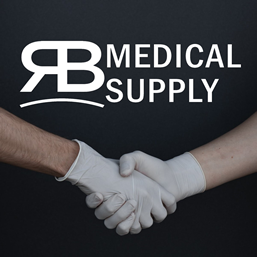
What Is An N95 Mask?
N95 masks are air-filtering respirators made from multiple layers of nonwoven, synthetic fabric. They are Covid protection equipment designed to create a seal around the nose and mouth by achieving a close facial fit. N95 respirator masks are intended for use in a healthcare setting to protect patients and healthcare workers from the transfer of microorganisms, bodily fluids and aerosol particles. Regulated by the National Institute for Occupational Safety and Health (NIOSH) and the Food and Drug Administration (FDA), N95 masks undergo a rigorous certification process prior to being approved for healthcare use in the United States.
How Effective Are N95 Masks?
N95 masks are so named because, when properly worn, they are certified to filter out at least 95% of tiny 0.3 micron particles, including dust, allergens and live particles (bacteria, viruses, etc.). Composed of two layers of spun-bonded polypropylene and two layers of melt-blown, nonwoven polypropylene, the N95 respirator masks manufactured by RB Medical Supply have been rated to filter at least 95% of particulates as small as 0.0725 microns and bacteria live particles as small as 0.1 microns.
Achieving Proper Facial Fit
In order to effectively provide this level of protection, N95 masks must fit snugly against the wearer’s face to form an adequate seal around the mouth and nose. While the NIOSH does not require fit tests as part of the certification process, many healthcare facilities will perform their own facial fit tests. When a proper seal cannot be achieved, as may be the case with small children and people with facial hair, the N95 mask will not be as effective at filtering out airborne particles.
Adhering to Proper Use Guidelines
N95 respirator masks are intended to be single-use, disposable personal protective equipment (PPE), donned and doffed once for each new patient encounter before being discarded. However, due to shortages brought about by the COVID-19 pandemic, healthcare facilities have been following the Centers for Disease Control and Protection's (CDC) guidelines for slowing the burn of available supply, including extended use and reuse practices. The CDC generally recommends no longer than eight hours for extended use wear and no more than five reuses of the same mask. Additional or prolonged uses will stretch out or distort the mask, making it difficult to achieve a proper facial fit and reducing its overall effectiveness.
How Well Does An N95 Mask Protect Against Airborne Viruses?
Most airborne viruses are transmitted by large respiratory droplets produced during coughing and sneezing. The virus attaches to these droplets, which are typically larger than 5 microns, and falls to surfaces within a relatively short distance. N95 respirator masks protect against airborne viruses by creating a seal around the nose and mouth that filters particles much smaller than the large water droplets that carry these viruses. When properly worn, N95 masks filter out 95% of live particles larger than 0.3 microns, including airborne viruses. For this reason, N95 masks are the only NIOSH-approved masks for healthcare workers who may come into contact with infectious, airborne diseases.
Order Masks Online from RB Medical Supply — Your Trusted Medical Supplier
At RB Medical Supply, we are dedicated to providing PPE for frontline workers, governmental agencies and the public during this time of great need. A division of RB Sigma, LLC, we are a top-tier medical supplier for COVID-19 PPE, offering a full line of high-quality masks and more – all manufactured in the heart of Northeast Ohio in our own Mentor facility. View our full selection and place your order today.

